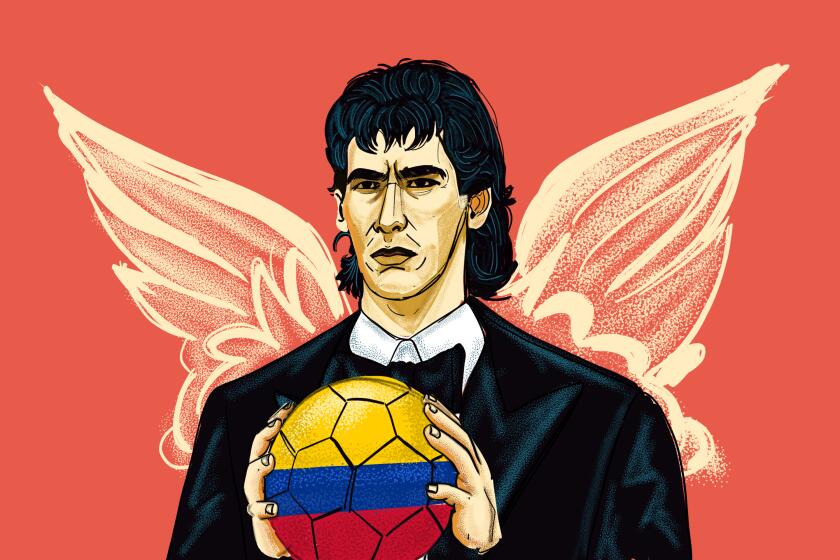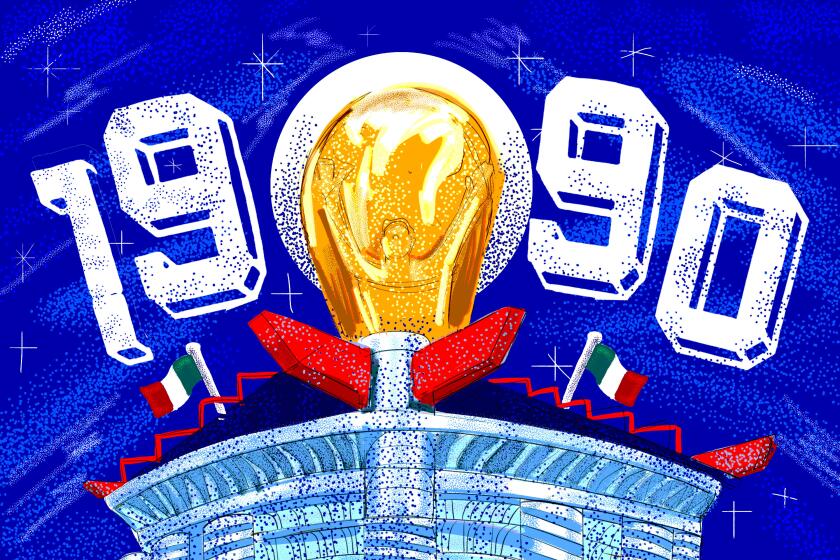Here’s what you need to know
- How to watch every World Cup match
Christian Pulisic’s heroics can’t save U.S. from disappointing World Cup start

AL RAYYAN, Qatar — The enduring image of the national team’s failure to qualify for the last World Cup was of Christian Pulisic, his uniform stained with grass and dirt, squatting in the middle of the field with his head in his hand in frustration. As a result, getting the U.S. to Qatar this fall probably meant more to Pulisic than any other player.
“He’s one of the people that really felt the heartbreak back in 2017,” goalkeeper Matt Turner said.
In a World Cup debut Monday that was delayed four years, Pulisic put in a heroic effort only to be frustrated yet again when a late penalty-kick goal allowed Wales to steal two points with a 1-1 draw.
“A little disappointed with how the game played out,” said defender Walker Zimmerman, whose foul in the box led to Gareth Bale‘s goal in the 82nd minute. “Being in a position with less than 15 minutes left to walk away with three points, it feels like we could have deserved a little bit more.”
Gregg Berhalter explains why Gio Reyna didn’t play vs. Wales
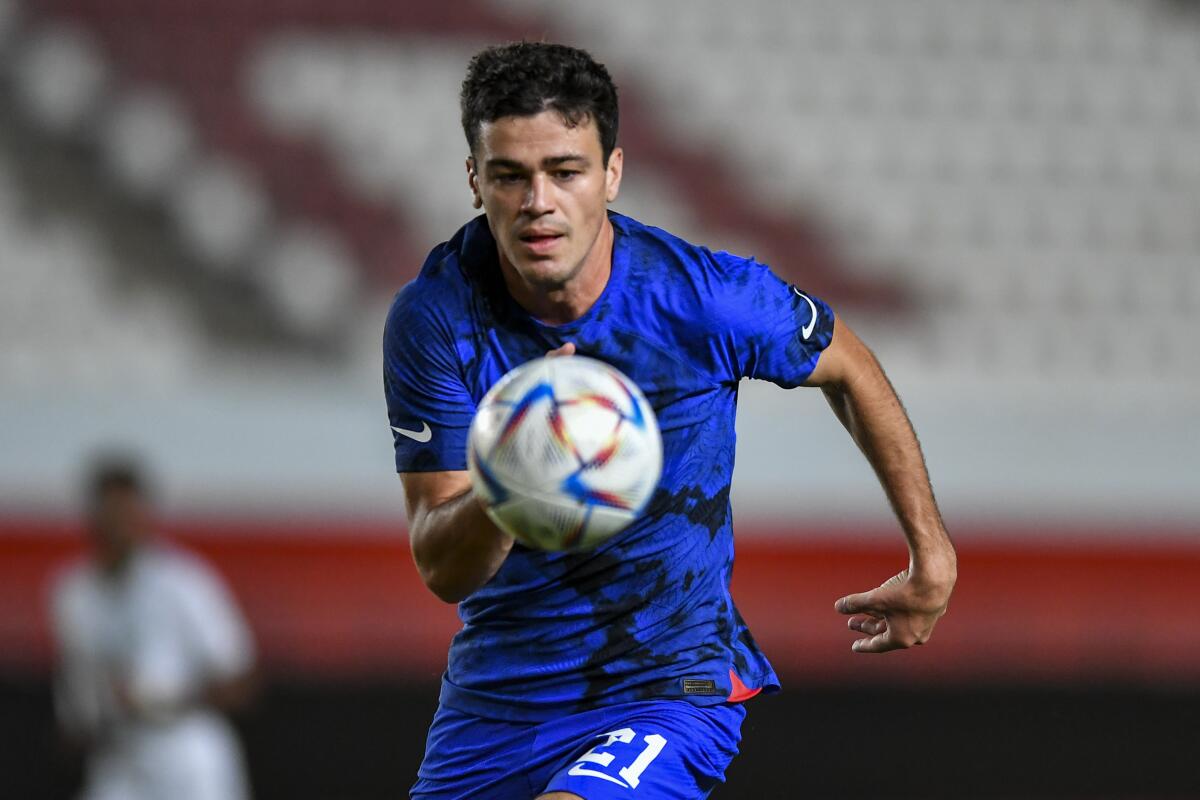
With the U.S. struggling to generate quality chances down the stretch in a 1-1 draw with Wales in its World Cup opener, there was one big question on everyone’s minds — where’s Gio Reyna.
The dynamic playmaker stayed on the bench as U.S. coach Gregg Berhalter made substitutions, but Reyna never saw playing time.
After the match Berhalter told reporters that Reyna was held out as a precaution after experiencing some “tightness” in his legs.
With the U.S. in desperate need of a solid showing against England on Friday after tying Wales, Reyna’s health will be something to watch in the days ahead.
U.S. plays to a 1-1 draw with Wales in World Cup opener
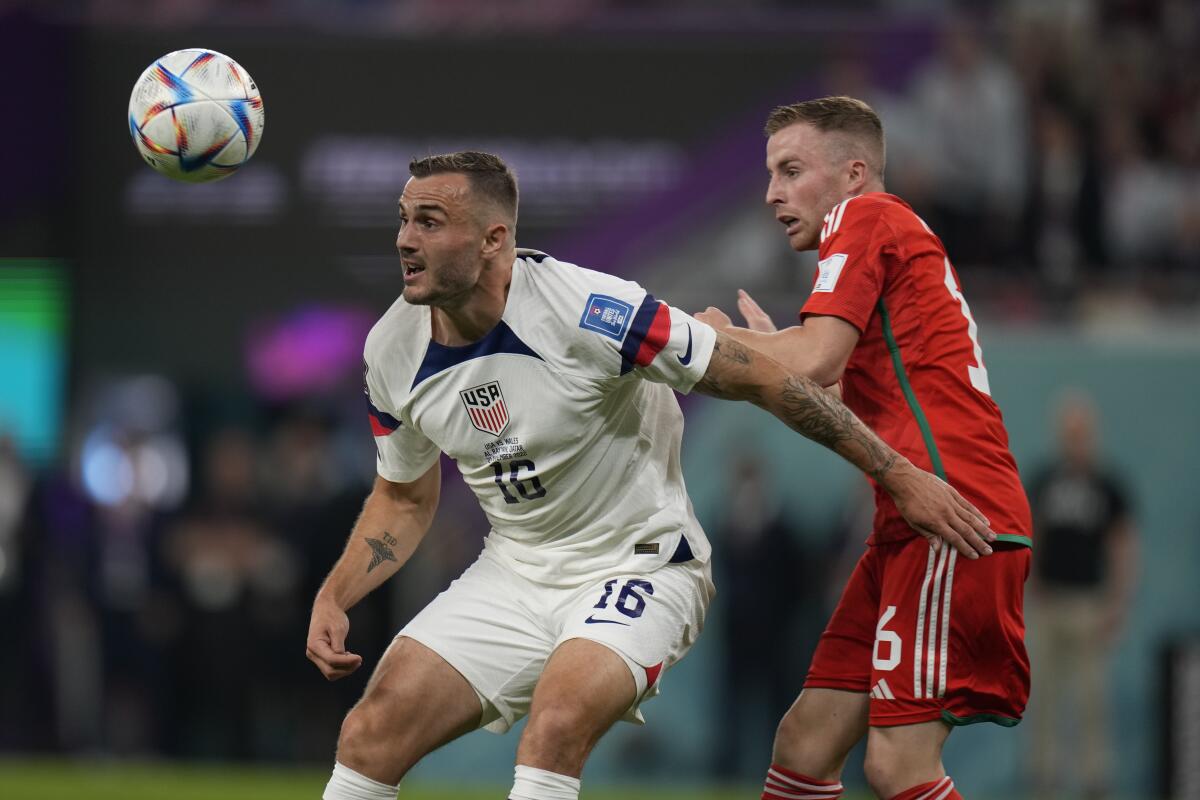
⚽ U.S. 1, Wales 1 — FINAL
The United States’ first World Cup match in eight years ends in disappointing fashion for the team in a World Cup-opening 1-1 draw against Wales.
The U.S. dominated during the first half but struggled to generate scoring chances after Wales made second-half adjustments.
Tim Weah scored for the U.S. in the first half off a stunning feed from Christian Pulisic. A foul in the box by American Walker Zimmerman led to Wales star Gareth Bale scoring in the 82nd minute on a penalty kick.
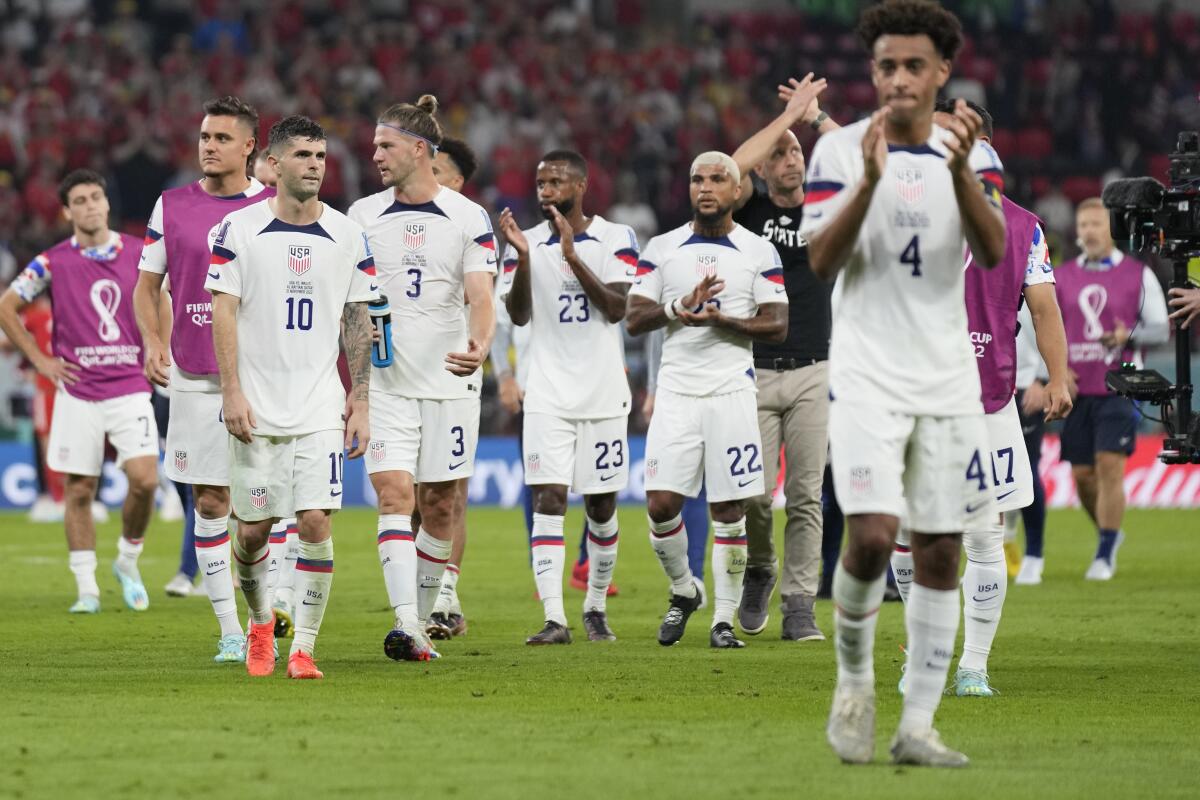
With the U.S. having difficulty keeping up the tempo of play in the second half, coach Gregg Berhalter made several substitutions but opted against putting Gio Reyna into the game.
For the U.S., the tie complicates its chances of advancing out of group play. A victory over England on Friday would go a long way in overcoming the disappointment of Monday’s result.
Nine minutes of stoppage time as U.S. tries to break tie
⚽ U.S. 1, Wales 1 — 90th minute
There will be nine minutes of stoppage time as each team looks to steal a win after a hard-fought contest.
A flurry of fouls have characterized the last 10 minutes since Gareth Bale’s goal in the 82nd minute.
Gareth Bale ties game for Wales on penalty kick
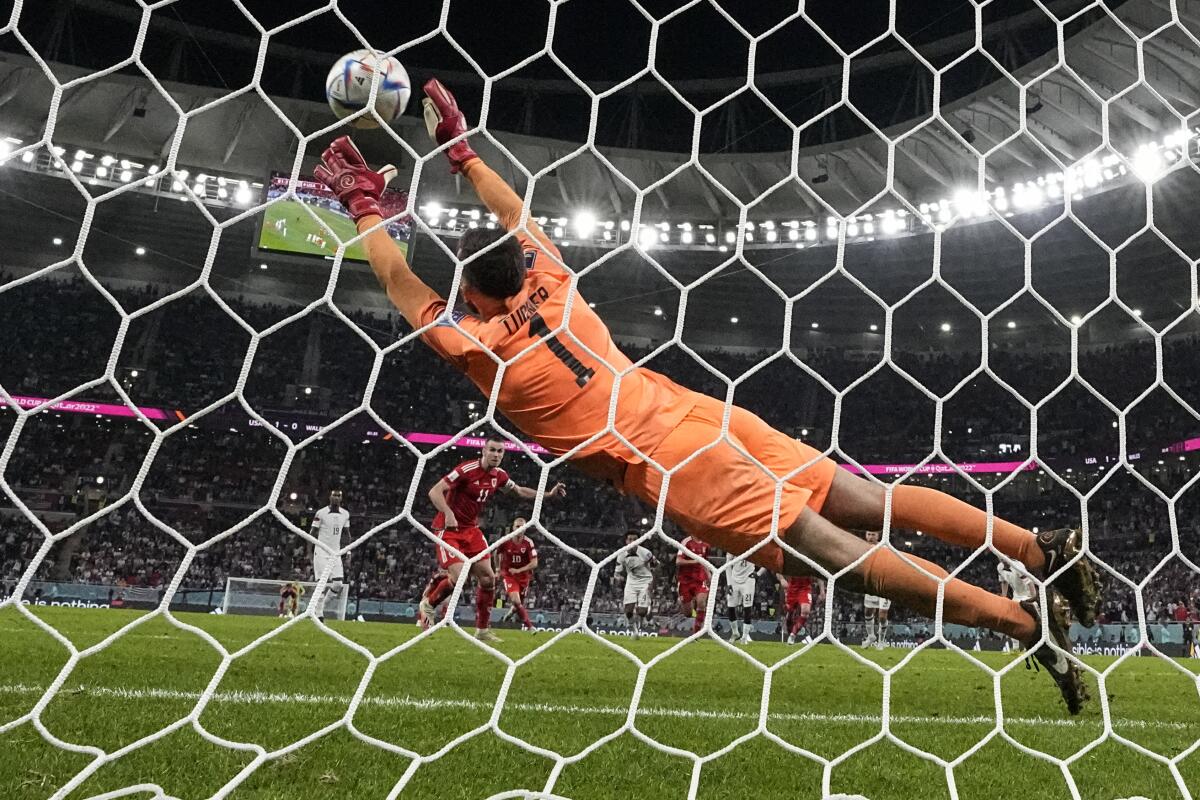
⚽ U.S. 1, Wales 1 — 82nd minute
Gareth Bale scored for Wales on a penalty kick in the 81st minute after Walker Zimmerman fouled the Wales star in the box.
Zimmerman aggressively challenged the LAFC star in the box for the ball, sliding through Bale for an obvious foul.
Bale then found the right upper-corner of the net, rocketing the ball past diving goalkeeper Matt Turner, who guessed correctly on the direction and got a hand on it. But the powerful kick was too much to stop.
After dominating the first half, the match has been much more evenly played in the second half, with Wales enjoying the edge. The U.S. has struggled to close out matches in international competition — will they break the trend over the next 10 minutes?

U.S. misses prime scoring chance in 72nd minute
⚽ U.S. 1, Wales 0 — After 72 minutes
Brenden Aaronson missed a prime opportunity to potentially put the game away in the 72nd minute when he missed a header in the box off a perfectly placed cross pass from Christian Pulisic. Aaronson had another scoring chance minutes later on a header that just went wide of the goal.
With Wales challenging more, the U.S. is getting fresh substitutes in the game as the scoring opportunities start to swing back into the United States’ favor.
Wales misses out on two quality chances to tie the game
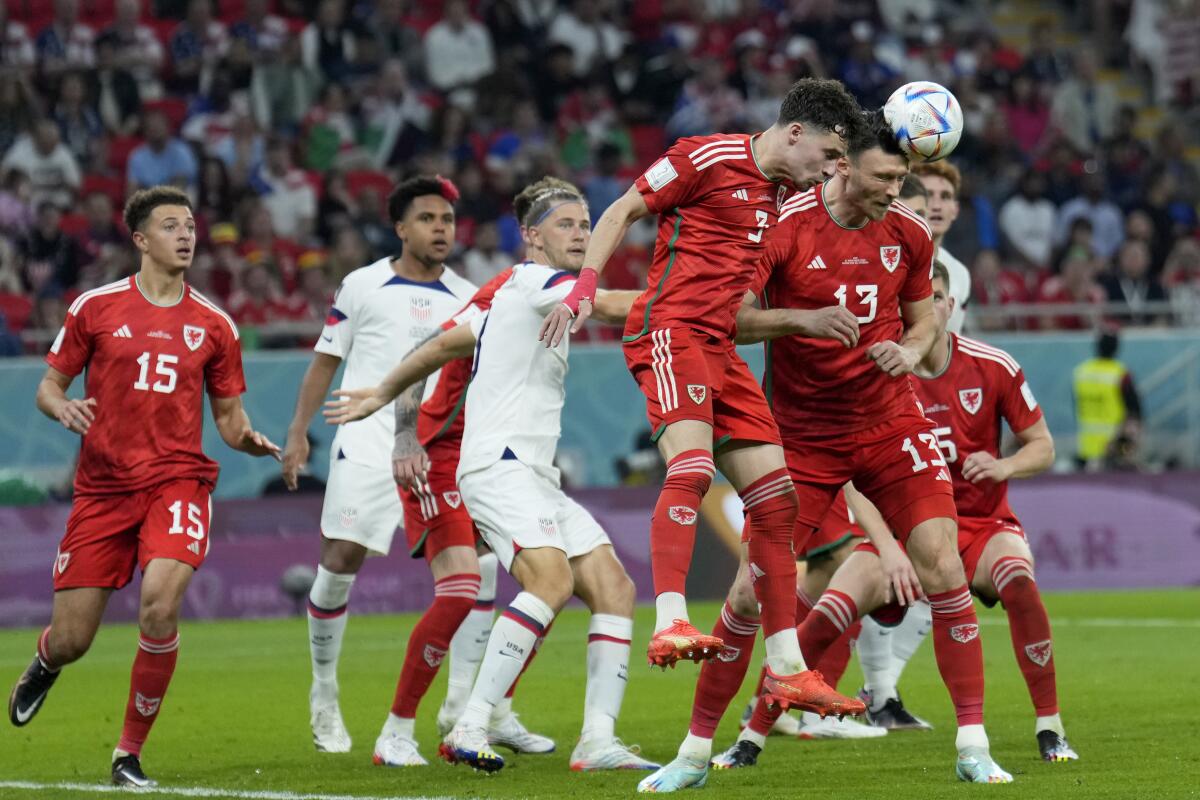
⚽ U.S. 1, Wales 0 — after 62 minutes
The one-sided play that characterized the first half is no more.
Wales is finding ways to generate opportunities, even if shots on goal remain in short supply.
The best scoring chance for Wales so far came on a header by Ben Davies that U.S. goalkeeper Matt Turner batted over the net for a stunning save. Another header by Kieffer Moore minutes later off a corner also nearly tied the game, but the ball went wide.
An Aaron Ramsey feed to Harry Wilson that nearly beat Sergiño Dest on the outside of box in the 55th minute went nowhere when Dest sent the ball out of bounds.
Second half underway as U.S. looks to build off strong start
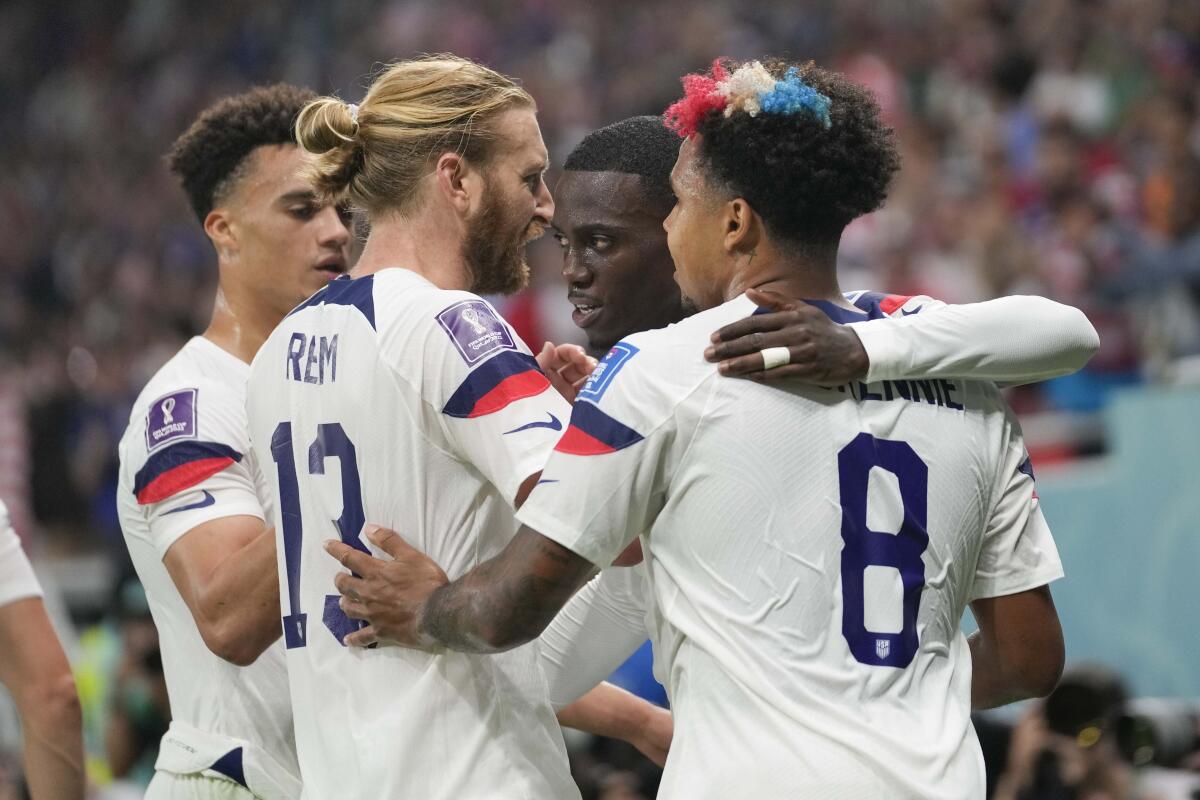
⚽ U.S. 1, Wales 0 — Second half underway
The U.S. dominated the first half and will look to continue more of the same against Wales over the next 45-plus minutes.
For Wales, they might need to be even more aggressive than they were in the first half to have any chance of playing spoiler in its first World Cup match in 64 years.
It’s been a relatively physical match so far, with the U.S. drawing eight fouls to Wales’ four.
Gareth Bale draws a yellow card as U.S. dominates first half
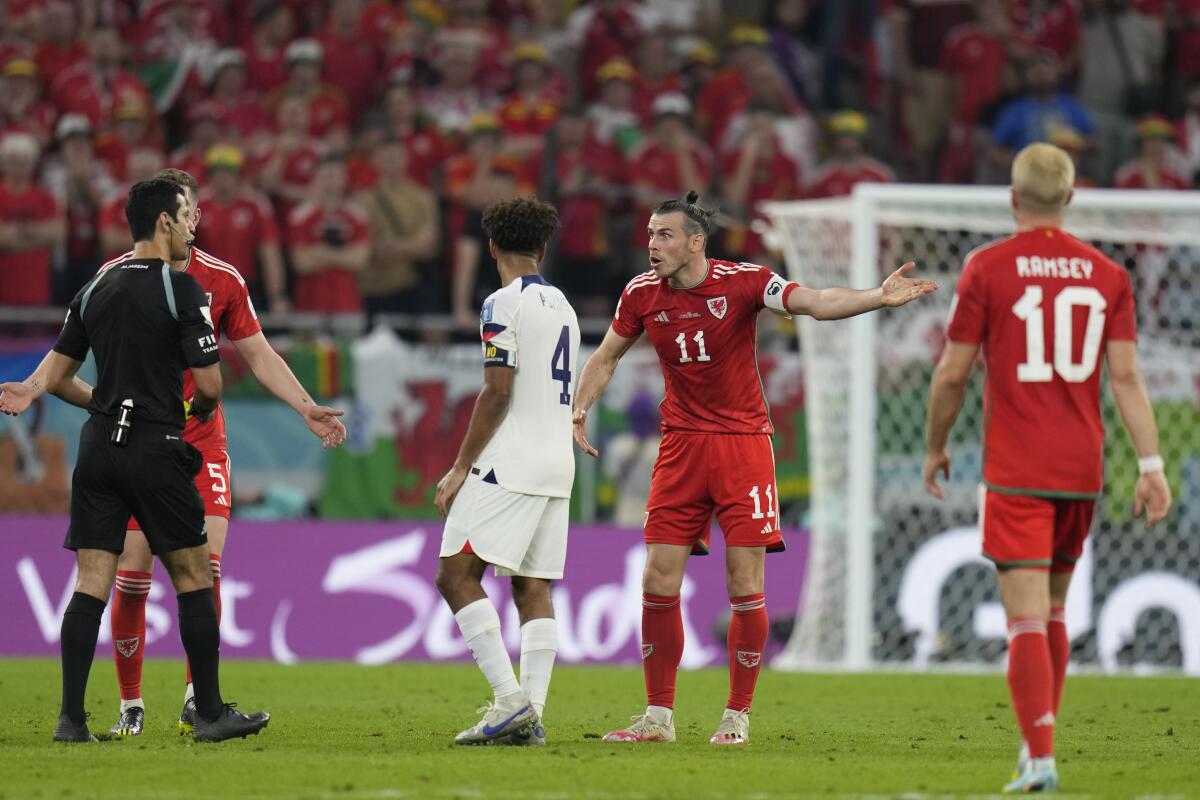
⚽ U.S. 1, Wales 0 — HALFTIME
Welsh star Gareth Bale drew a yellow card after battling for the ball as Wales tries to exert some pressure on the U.S.
Wales has controlled the ball more since Tim Weah’s goal, but they’re struggling to create quality chances. They did get a corner kick in the 44th minute, but the ensuing header went wide of the goal.
Wales defender Chris Mepham also was shown a yellow card after fouling Christian Pulisic on a challenge.
Tim Weah scores to give U.S. 1-0 lead over Wales
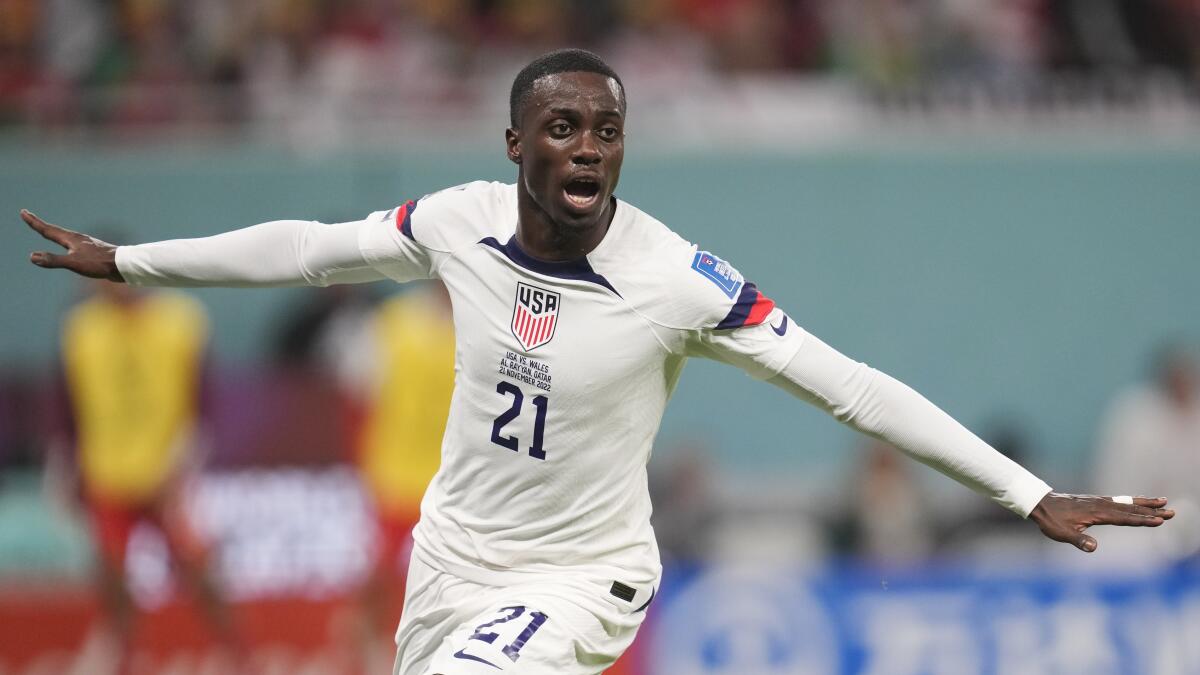
⚽ U.S. 1, Wales 0 — 34th minute
Tim Weah scores off a great outlet feed from Christian Pulisic to give U.S. the lead in a dominating first half by the Americans.
Josh Sargent started the play, getting control of the ball on a header, then dishing it to a streaking Pulisic to pull up the Wales coverage.
Sprinting past the back line, Pulisic timed his pass to Weah perfectly as Weah powered into the middle of the box, kicking the ball past hung-out-to-dry goalkeeper Wayne Hennessey for the first U.S. World Cup goal in more than eight years.
The U.S. has been dominating the game so far. The ball has almost exclusively been on the Wales side.
U.S. continues to put pressure on Wales in first half
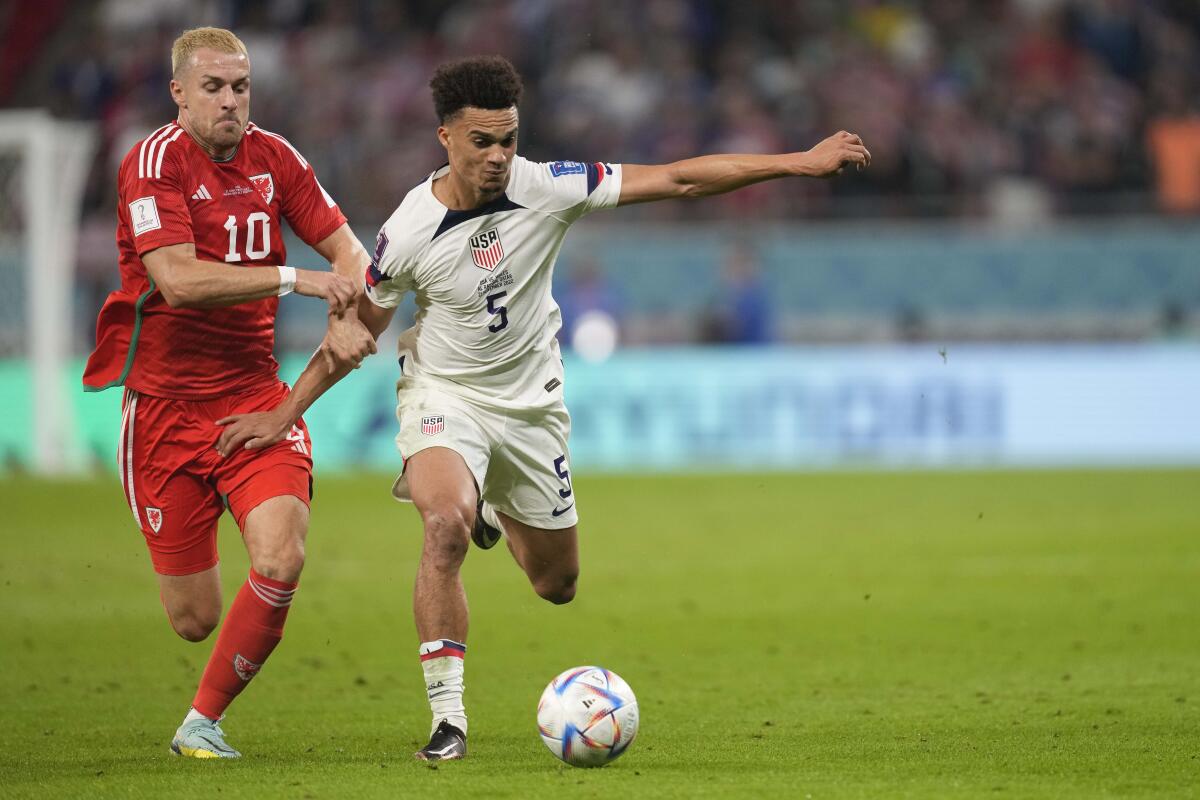
⚽ U.S. 0, Wales 0 — After 33 minutes
The U.S. continues to put pressure on the Wales goal, but they’re not generating quite the level of opportunities they did in the match’s opening minutes.
Sergiño Dest had a decent shot from outside the goalbox that went over the net. Despite the pressure, the quality chances inside haven’t really developed in the last 10 minutes. Still, the ball is almost exclusively on the Wales’ side of the field, so it might be only a matter of time before the U.S. finds the back of the net.
The U.S. continues to be a bit frustrated by the referee — they’ve been called for five fouls so far, and two yellow cards. Wales defender Chris Mepham shouldered Christian Pulisic to the turf in the 32nd minute, but wasn’t called for a yellow, much to the consternation of U.S. players and fans in attendance.
U.S. players already called for two yellow cards vs. Wales
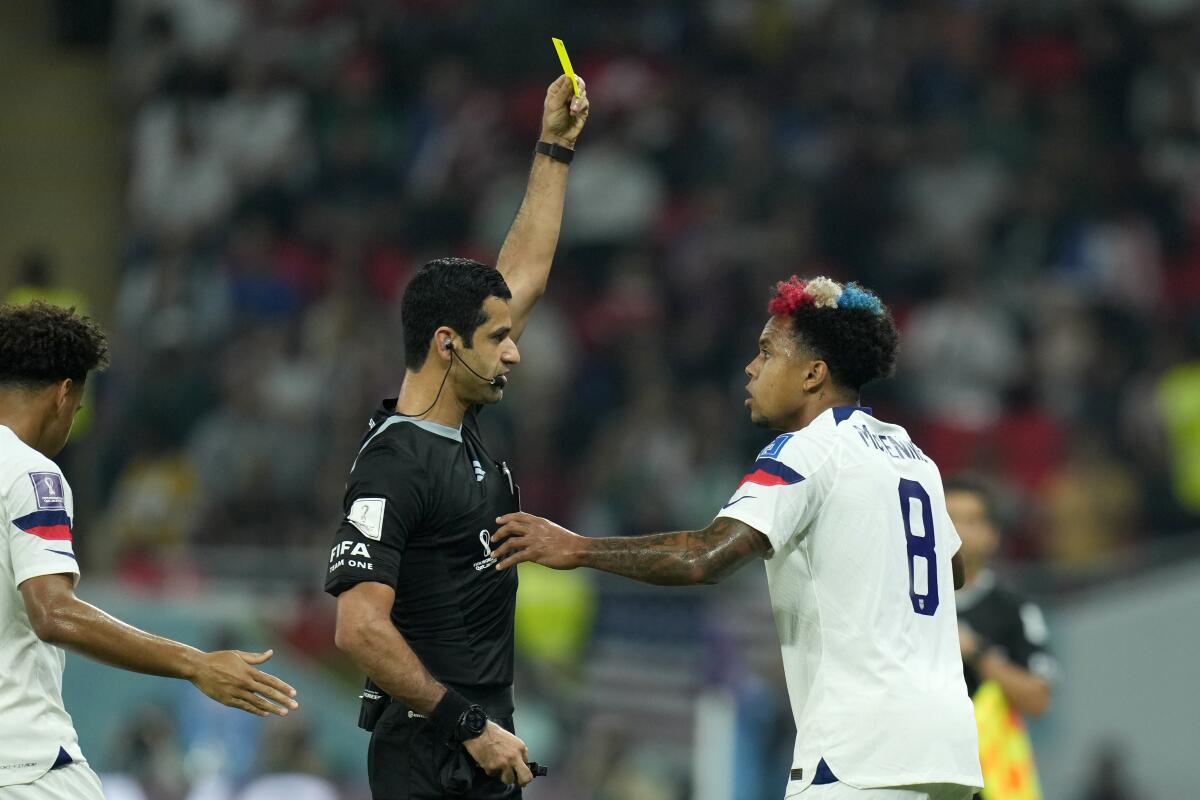
⚽ U.S. 0, Wales 0 — After 20 minutes
The U.S. has been aggressive in its first World Cup in more than eight years — perhaps a bit too aggressive.
Sergiño Dest and Weston McKinnie drew yellow cards in the opening minutes against Wales. U.S. coach Gregg Berhalter and the U.S. players seem frustrated by some of the early calls.
The U.S. has had a couple good scoring chances, particularly when Josh Sargent hit the goalpost with a header off a fine Antonee Robinson cross pass in the 10th minute.
Wales almost committed an own goal when Joe Rodon nearly headed the ball into the net — a great save by Welsh goalkeeper Wayne Hennessey saved them from embarrassment.
Players on Wales do not protest before match against U.S.
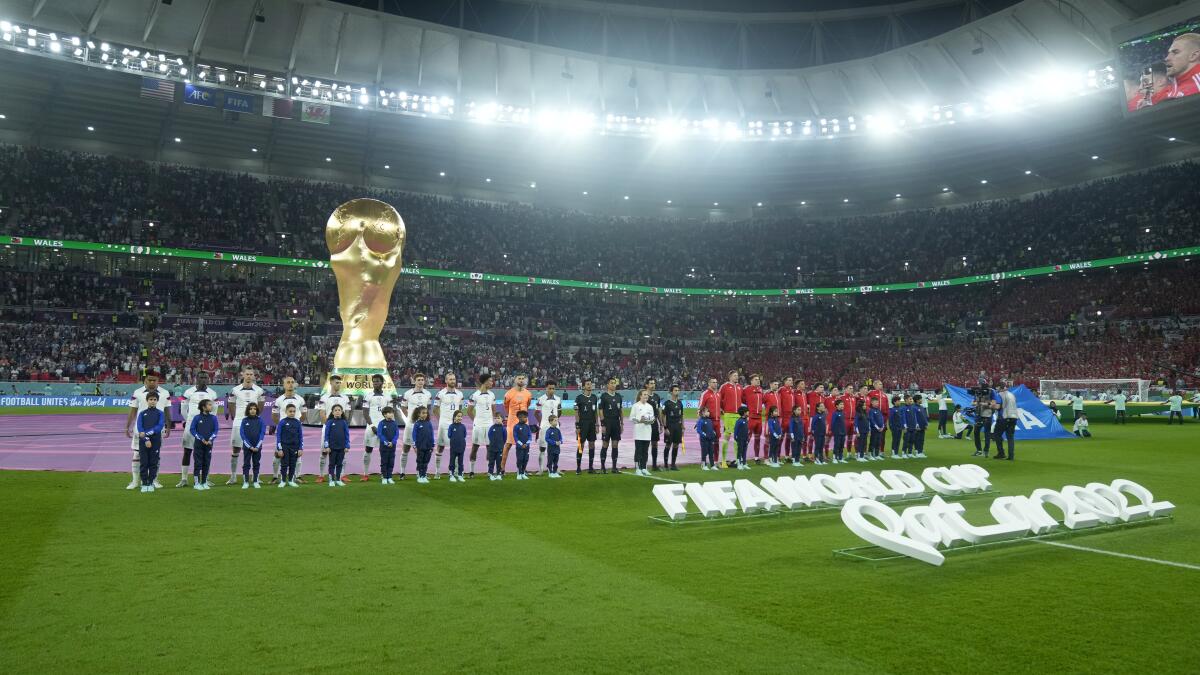
The captains of seven European teams said they intended to wear armbands sporting the heart-shaped logo of the OneLove movement, which promotes inclusion and diversity in soccer and society.
However, players on Wales were not wearing protest armbands and no one was kneeling before the start of the team’s match against the United States.
FIFA had warned players before the start of Monday’s matches that players wearing armbands not provided by FIFA would be given a yellow card.
Shortly after the warning was issued, the soccer federations of the seven European nations — Belgium, Denmark, Germany, the Netherlands, Switzerland, England and Wales, which played the U.S. on Monday — issued statements saying they would abide by the rule. Many promised before the tournament their captains would wear the armbands without FIFA approval.
Meet Andrés Cantor, the man whose breathtaking goal calls capture the ‘spirit’ of soccer

The narration unspooled in an uncommonly prescient way, as if the man behind the Telemundo microphone knew exactly how the play would unfold.
“Here it comes, here it comes, here it comes,“ Andrés Cantor tells his audience in Spanish.
It isn’t until the ball goes into the net that he unleashes the call that has made him one of the most popular — and parodied — announcers in U.S. sports history.
“Gooooooooooooooooooolllllllll!!!!,” he screams, a lung-clearing bellow that can last 20 seconds or more and, after a pause for breath, will be repeated by another that lasts even longer.
Even if you’ve never heard Cantor’s name, you’ve heard his voice — if not on Telemundo or his Fútbol de Primera radio network, where he calls more than 120 games a year, then in commercials for Geico, Volkswagen and Pepsi, on an episode of “The Simpsons,” or in the 2014 Disney feature “Muppets Most Wanted.”
Subsidized healthcare for falcons? Qatar’s love for falconry permeates its culture
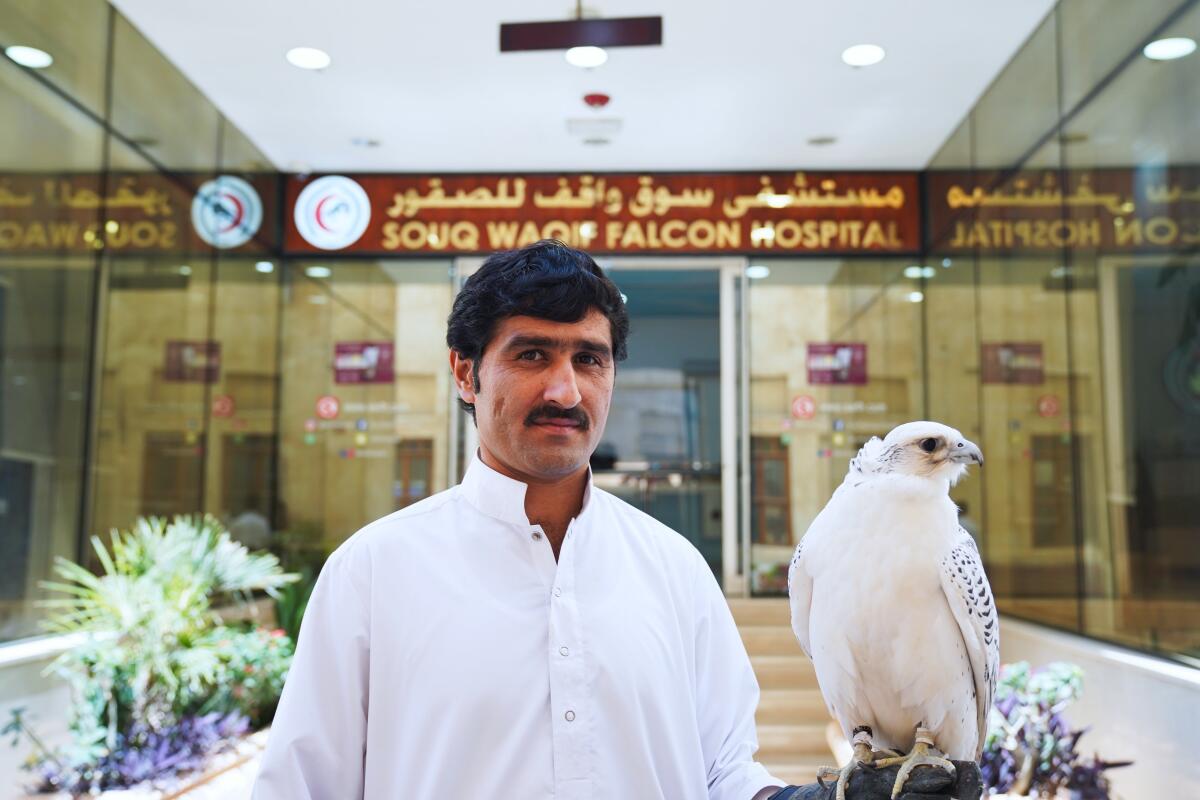
DOHA, Qatar — The Souq Waqif, Doha’s ancient marketplace, unspools from the nearby bay like a roll of precious fabric. A medieval maze of narrow alleyways linked to a wide main plaza, the Souq has long served as a trading post for Bedouin arriving by camel and travelers in small boats.
But today, as one of the city’s last surviving historic urban spaces, the Souq also serves the rapidly modernizing emirate as a link to a history and a culture that is fading. Nowhere is that clash of past and present more apparent than at the market’s falcon hospital, a state-of-the-art medical facility dedicated to caring for animals that have been revered here for centuries.
“In Qatar, falcons are a symbol of dignity, valor and pride,” said Dr. Ikdam M. Alkarkhi, the hospital’s Iraqi-educated director and veterinary consultant. “For Arabs, falconry was a way of life where every household, irrespective of their social or tribal status, enjoyed the presence of falcons around them. Falcons would be considered part of the family.”
Tim Ream ready to live the World Cup dream as the USMNT ‘grandpa’
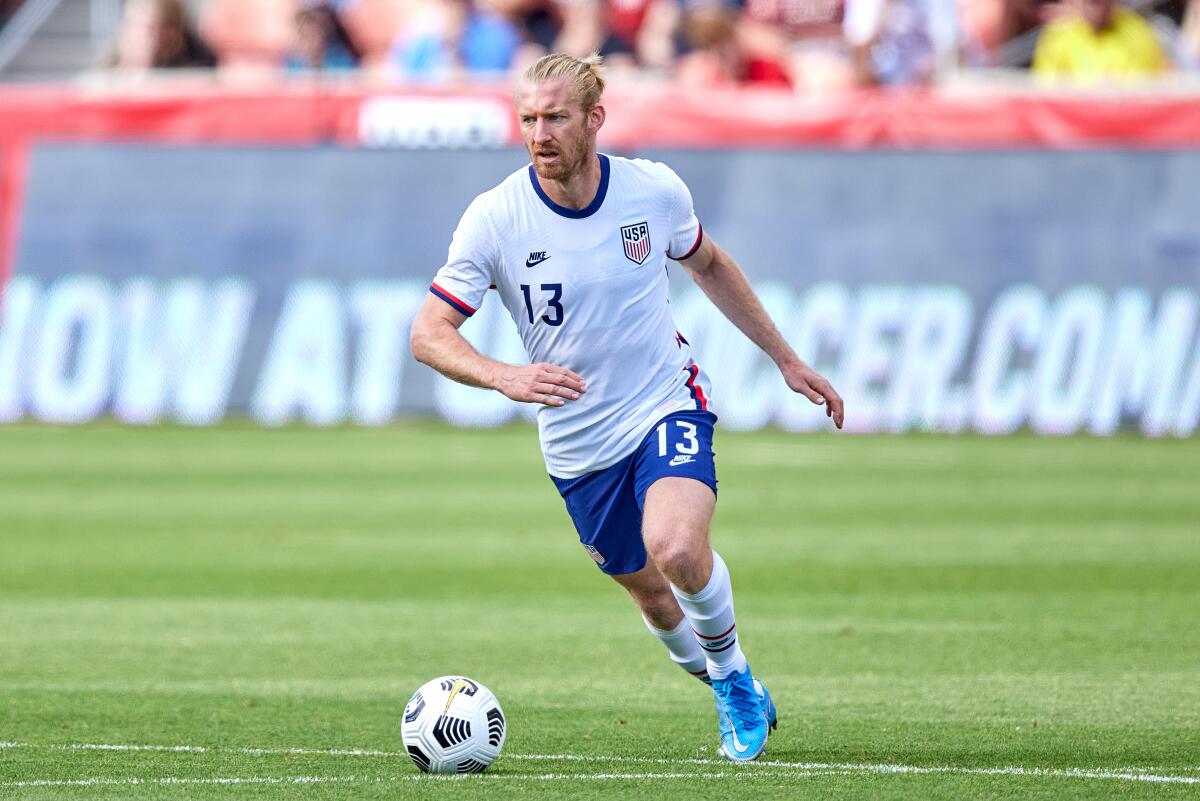
DOHA, Qatar — Tim Ream thought he was going to the World Cup four years ago, only to see the U.S. fall one point shy after a fluke loss to Trinidad and Tobago in the final qualifier.
He thought he had a shot this year, only to fall off the national team’s depth chart, going 14 months without call-up. So when coach Gregg Berhalter reached out earlier this month and invited him to Qatar, it wasn’t as much a surprise as it was a relief.
Berhalter is expected on Monday to reach out again and complete that dream by giving Ream a place in the starting line at center back in the Americans’ tournament opener against Wales.
“You don’t ever give up hope. You never completely say you’re out of the picture,” said Ream, who was pretty much out of the picture until injuries to center backs Miles Robinson and Chris Richards muddled the focus.
Women officials ready for their transformative moment at the World Cup
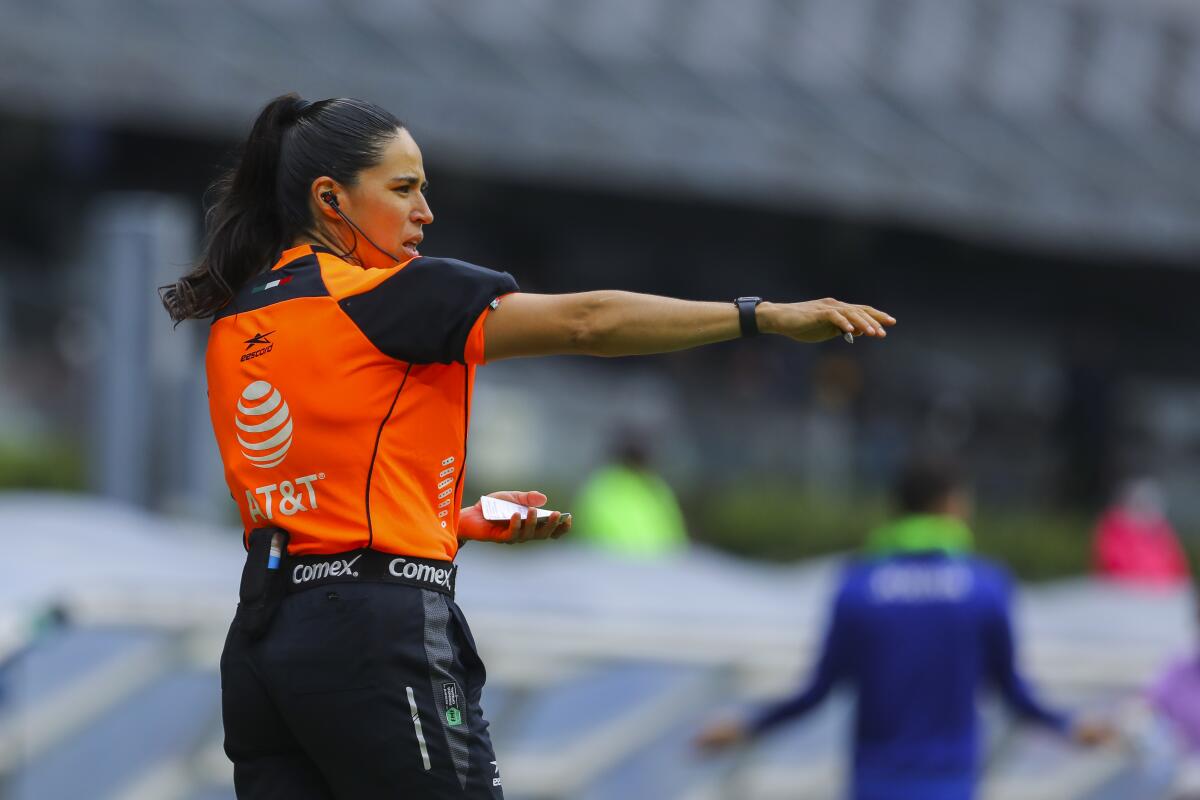
DOHA, Qatar — In her old day job as an analytical chemist, Kathryn Nesbitt studied brain chemicals in an effort to learn how that organ worked. Trying to understand the origins of rational thought did her little good in her side job as a soccer official, however, because with FIFA rational thought has long been an oxymoron.
That might be changing.
For more than a century, FIFA, soccer’s global governing body, banned women from refereeing men’s matches, a policy that began to ease after the Bundesliga, the English Premier League, MLS and other domestic leagues allowed females to officiate their games, and they proved more than equal to the task. So two years ago, FIFA showed signs it, too, was becoming more enlightened when it put a woman, Brazilian Edina Alves, in charge of the club World Cup final.
But the World Cup? Surely that was another four years off, Nesbitt thought — right up until she got the call telling her she would be one of six women officials calling games in Qatar this fall.
LAFC teammates Kellyn Acosta and Gareth Bale meet again in U.S. vs. Wales

DOHA, Qatar — The last time Kellyn Acosta and Gareth Bale were on a soccer field together was in the MLS Cup final at Banc of California Stadium, where Bale’s goal deep in extra time set up LAFC’s victory on penalty kicks.
“That’s probably the fastest I ran in the game,” Acosta said of his dash to celebrate with Bale near the corner flag. “We just had a moment together.”
They’ll have some more moments together Monday when the U.S., with Acosta in the midfield, returns to the World Cup for the first time in eight years, opening against Wales and Bale, the team’s captain.
Bale, limited by injury, didn’t see much game time in his half-season with LAFC but Acosta saw enough of him on the training field to learn his strengths and weaknesses. And those are things he’s passed on to his U.S. teammates.
“Don’t let him get to his left foot,” Acosta said. “Special players make special plays and he’s a guy you definitely have to be worried about. I know his tendencies, like where he wants to find the ball, what kind of runs he’s looking for, his movements, how he kind of operates within the game.
“So I think I have an advantage in that respect. And that, obviously, I’ve kind of shared with the guys here. But I think everyone kind of just knows Gareth from just watching him play over the years.”
Christian Pulisic embracing the pressure of spearheading U.S. World Cup ambitions

Landon Donovan was the young leader of a talented U.S. team that hadn’t won a World Cup game in eight years when he made his tournament debut in 2002.
That’s the same situation Christian Pulisic will face Nov. 21 when the U.S., which didn’t qualify for the last World Cup, opens play in this year’s tournament in Qatar.
And speaking from experience, Donovan said even Pulisic may not realize what he’s in for.
“I don’t think people can really understand how difficult the position he is in is,” Donovan said. “He’s depended on to sort of carry this team, meanwhile he’s never played in a World Cup. It’s really, really difficult.”
The pressure, Donovan said, can crush you or it can inspire you. Pulisic is taking the latter approach.
Qatar walks tightrope between Arab values and Western norms with World Cup gamble
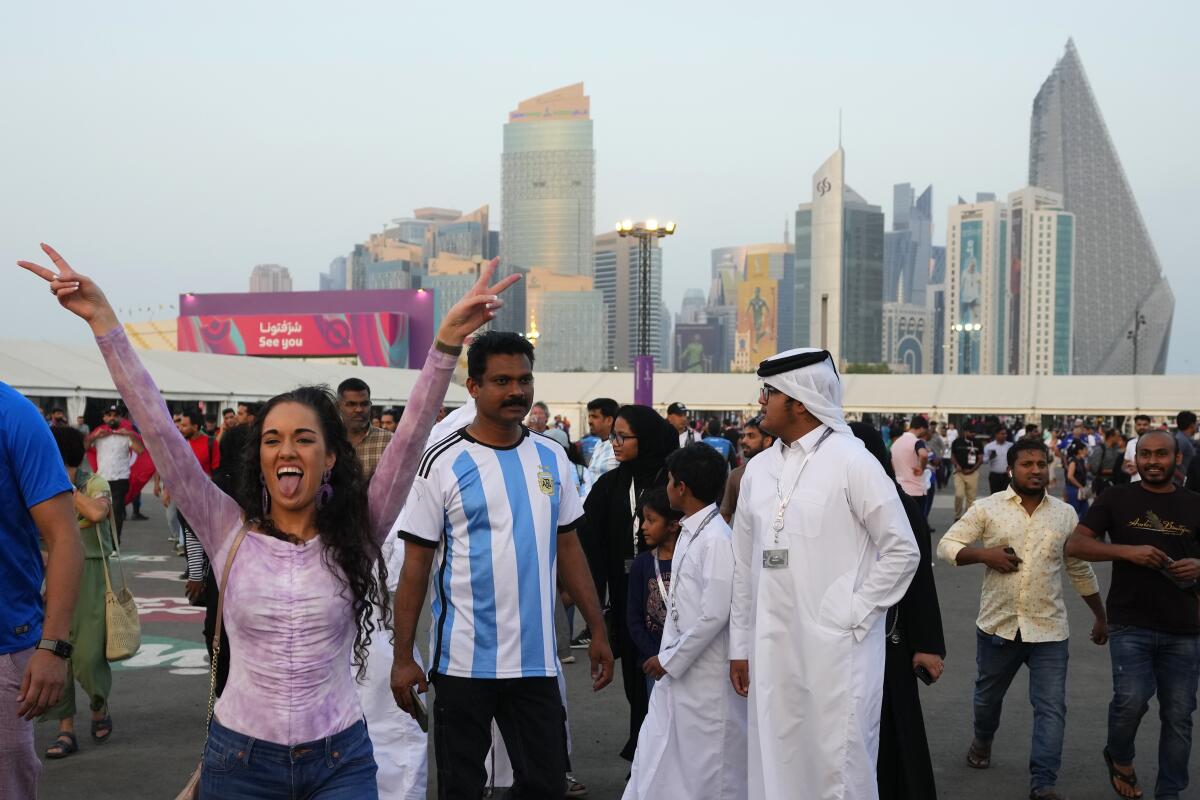
DOHA, Qatar — The calm before the storm is over. Now comes the deluge.
After years of anticipation and more than $200 billion in infrastructure spending, the 2022 World Cup will kick off in Qatar on Sunday. Over the following 28 days, more than 1.2 million people will flood the conservative Gulf state, which is smaller than Connecticut and has a population of about 2.9 million, three-fourths that of Los Angeles.
And there’s more than a little concern that flood will overwhelm a country that has had 12 years to prepare and still doesn’t appear ready.
“Qataris themselves are quite apprehensive about what’s coming,” said Michael Quentin Morton, an English author and historian who grew up in Qatar, Bahrain and Abu Dhabi. “They [only] have to turn the television on and see what can happen at these big football tournaments to be concerned.”
Gracias Fútbol: Reliving our favorite World Cup memories
The World Cup generates a wide range of emotions and with Qatar 2022 starting this week we wanted to bring together a collection of stories and memories of the big event.
En vísperas de Qatar 2022 se recuerda al jugador colombiano Andres Escobar en un momento alegre antes del Mundial de 1994.
As the World Cup in Qatar gets ready to kick off, rooting for Argentina makes me reflect on all the past joys and heartbreaks.
As the World Cup in Qatar 2022 approaches, a Chicano kid reflects on how soccer helped him find his place in the world.
Desde el primer Mundial que vi en en 1990 hasta Rusia 2018, la Copa del Mundial ha dejado momentos inolvidables en mi vida
Alexi Lalas and Stu Holden embrace World Cup pressure as players turned broadcasters
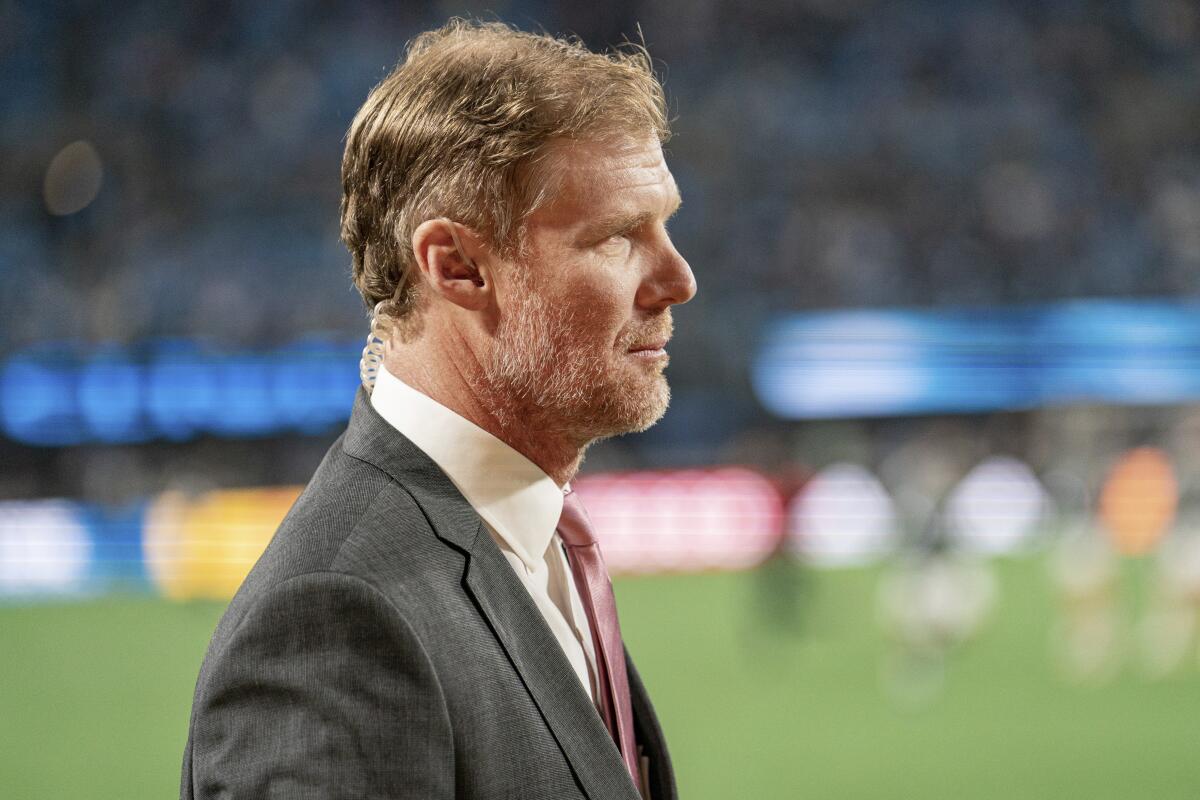
As someone who has played in a World Cup and broadcast one, Alexi Lalas says the biggest difference between the two is what you wear to the game. Everything else is pretty much the same.
“There are obvious similarities in terms of preparation, both mental and physical,” said Lalas, who now wears a suit and tie instead of shorts and a shirt with a number on it. “There is a recognition of opportunity, there is a recognition of scrutiny, there is an understanding of responsibility and the potential for success, failure, praise, criticism, all those different things.”
Even the anxiety is the same, said Stu Holden, who, like Lalas, has experienced a World Cup game on the field and behind a microphone.
“Standing there moments before the World Cup final in 2018 was probably the closest I’ve come to the rush of being a professional athlete,” Holden said. “When I knew that red light was coming on, I had those butterflies, that good nervous energy of, ‘Man, this is a big deal.’ ”
A guide to the eight stadiums hosting games at the 2022 World Cup
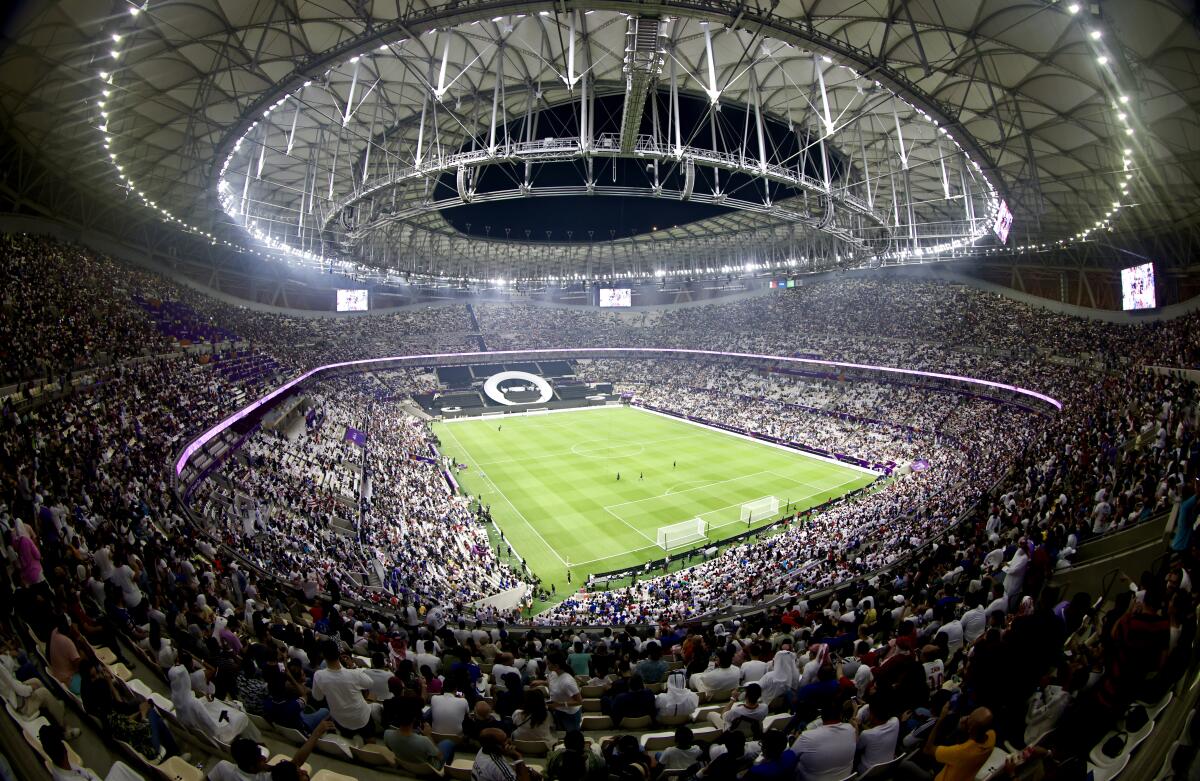
One stadium looks like a boat, another like a giant Bedouin tent. One was built with 974 shipping containers.
Qatar’s World Cup venues are as spectacular as the tournament they will host. And though the combined price tag for building or refurbishing all eight stadiums was less than what Stan Kroenke paid for SoFi Stadium alone, the cost of construction was enormously high in human terms.
A detailed analysis by the Guardian found the deaths of 37 workers were directly linked to stadium construction, part of a grim toll of more than 6,500 migrant laborers who died between 2011 and 2020, many while helping build World Cup infrastructure. The low cost of stadium construction reflects the even lower cost of labor in Qatar.
After disaster four years ago, U.S. men’s soccer team aims to be World Cup spoiler
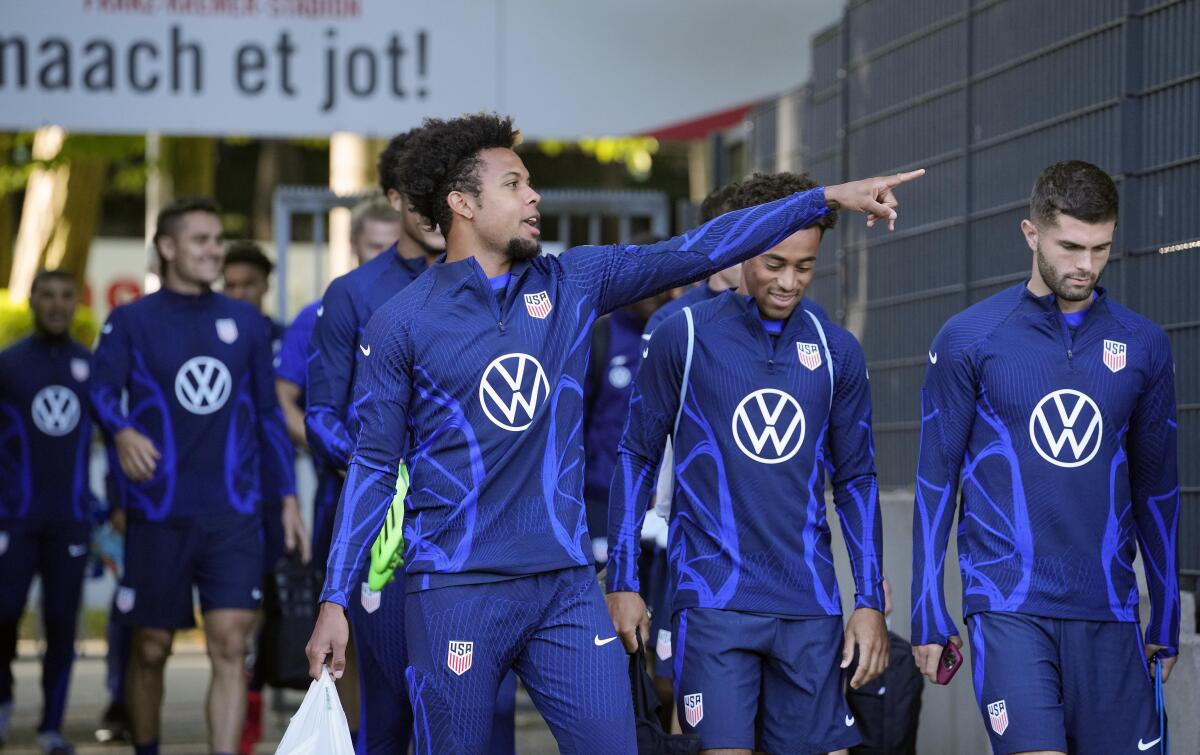
DOHA, Qatar — The soundtrack of the U.S. national team’s failure to qualify for the 2018 World Cup will always be Taylor Twellman’s epic rant inside an ESPN studio in Bristol, Conn.
“It is an utter embarrassment!” Twellman, a former national team player, screamed at a camera moments after the Americans lost to Trinidad and Tobago, missing the World Cup for the first time in nearly three decades. “That should have never happened. And it did. And every single person should look themselves in the mirror.
“What are we doing?”
Twellman’s point was the United States couldn’t consider itself a soccer country, one that could compete with Argentina and Belgium, if it couldn’t beat Trinidad and Tobago. How could it be a world power if it couldn’t qualify for a World Cup?
U.S. Soccer needed to start over — so it did.
U.S. men’s soccer embracing ‘Be the Change’ mantra ahead of controversial World Cup
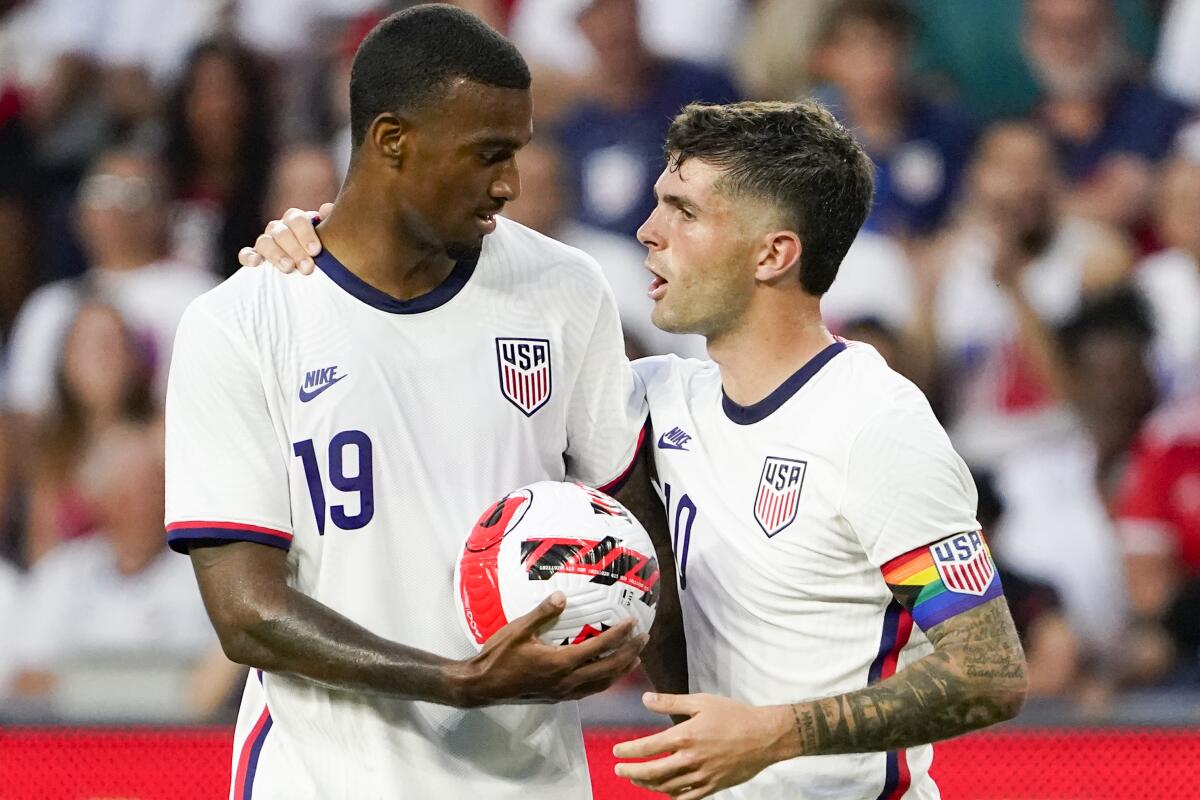
DOHA, Qatar — The last thing U.S. players see before taking the field at Al-Gharafa Stadium, the Americans’ World Cup training base in Doha, is the slogan “Be the Change” in bold letters on the wall of the tunnel leading from the locker room.
The team adopted the motto two years ago, following George Floyd’s death under the knee of a Minneapolis police officer and the subsequent rise of the Black Lives Matter movement. But it has taken on new importance in Qatar, where the government has been roundly criticized for its treatment of migrant workers and the LGBTQ community in the run-up to this month’s World Cup.
“We’ve been talking to the team for the last 18 months about some social issues in Qatar. When we are on the world stage and you’re in a venue like Qatar, it’s important to bring awareness to these issues,” coach Gregg Berhalter said. “That’s what ‘Be the Change’ is about. It’s not just stateside that we want to bring attention to social issues.

